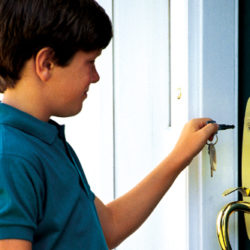
How Mothers Lose Custody in Indiana
Indiana is a state that favors both parents equally. In the best interest of the child, meaningful relationships with both parents is the standard. In the eyes of the law, a married mother and father in Indiana start out with joint legal custody. Meaning, both parents share equal rights to their children.
Historically, there has been an assumption that mothers are automatically granted custody of the children by default. However, with more mothers working, and more men moving beyond the title of “family breadwinner, taking on more aspects of childcare responsibility, custody is fair game between the sexes.
While equal involvement from both parents is ideal, in some cases, the Courts may decide that it is in the children’s best interest for the father to have custody instead of mother. Statistics show that 50% of the time, men are awarded custody of the children in a divorce.
So, how does a mother lose custody in Indiana?
- Lack of involvement – If the court can see that the mother is neither the primary caretaker, the parent meeting most of the child’s basic needs, or even an active participant in the child’s life, granting custody to the parent who hasbeen involved on a consistent basis is likely.
- Alcohol or substance abuse – Abusing drugs or alcohol is a surefire way for a mother to lose custody of a child in Indiana. Any parent using illegal drugs, whether in the presence of their child or not, is risking the custody of their child.
- Domestic abuse – First, abuse in the presence of the child will result in an investigation of neglect by the Indiana Department of Child Services. Physical aggression, even with a female perpetrator, is domestic violence. A mother can lose custody in Indiana for being physically abusive to her children’s father.
- Online activity – In the age of technology, there is a virtual paper trail with every click of a mouse we make. Not making responsible choices with posting online content, such as posting videos of irresponsible behavior, or even chronic disparaging remarks about the other parent can lend to a mother losing custody in Indiana. Certainly one instance of badmouthing the other parent on social media isn’t all that it takes to lose custody, but flippant use of technology can help the other party build a case against the mother.
- Discouraging the father/child relationship – If a mother does chronically make disparaging remarks about the father, online or otherwise, it can be seen as a form of interfering in the relationship between father and child. The Court will, at very least, issue a reprimand for interference in the father/child relationship, but it could also amount to a mother losing custody in Indiana when coupled with other factors.
When a mother faces losing legal custody in Indiana, one of the most important steps to consider is consulting with a seasoned family attorney. Once the attorney has gotten all of the information, and gives their opinion, following their advice is imperative. The advice given from an experienced family attorney could mean the difference of whether or not a mother loses her child.












